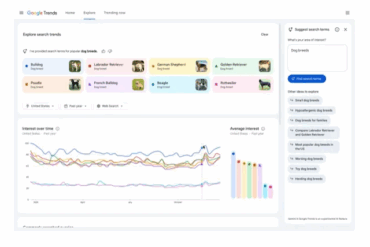By
The #StopHateForProfit movement on Facebook is the latest example of this. On July 1, Business Insider reported that more than 500 brands had committed to the #StopHateForProfit movement, pausing ad spend on Facebook and Instagram in order to voice their concern over the spread of hate speech and misinformation on the platform. As of August 11, that number had more than doubled.
From my perspective, this movement is incredibly powerful and stems from the simple truth that companies today vote with their dollars. Where and with whom they spend their money exposes more about their social ethics than what they say. And paid media is arguably one of the biggest driving forces for how brands show up and support our digital world today.
This movement has aimed to inspire change within Facebook as a business. My company’s work with content creators and in influencer marketing has shown me, however, that some content creators could be negatively impacted as well. Aside from pausing ad spend with Facebook directly, I’ve observed that many brands have also stalled or pushed out influencer marketing campaigns, which has inadvertently affected content creators whose livelihoods depend on sponsored content.
As we collectively work to adjust how platforms combat hate speech, from Facebook and beyond, I encourage brands to consider whether they can continue supporting and empowering creators who are spreading positive messages and bringing communities together on a daily basis. Influencer marketing offers an incredibly diverse ecosystem of backgrounds, interests, talents, lifestyles and audiences for brands to tap into. If you’re working with creators who align with your brand’s values, you can create a natural dialogue among consumers and products or services and tie it to the world around them.
At a base level, every brand is a fit for influencer marketing campaigns, as long as it’s partnering with the right creators. Although it’s mostly touted as effective for direct-to-consumer brands, there are a multitude of options for creators and platforms to reach even the most niche audiences, whether it’s small business and entrepreneurship tips, auto repair or human resources software solutions.
For more unconventional brands looking to pursue influencer marketing, it’s important to start by really understanding which channels your audience is on and partnering with the relevant creators from there. A younger audience looking for how-to videos might call for YouTube, whereas an entrepreneurial audience might call for LinkedIn or Twitter.
Another major benefit of influencer marketing is closer visibility into who is seeing your message and the content it’s integrated within. With automated advertising on social media and the internet more broadly, there aren’t enough checks and balances to ensure that your advertisements aren’t being placed against content that is deemed unsafe or unsuitable for brand safety guidelines. From my perspective, influencer marketing can help mitigate that fear because the message is integrated into the content directly and shared with a specific audience that is already tuned into that particular channel.
At the end of the day, I believe a campaign focused on disseminating helpful, timely information with the appropriate content creators is still a viable option for brands interested in partnering with influencers. This type of marketing gives brands the opportunity to bring together diversity in background, thought and interests. Instead of having a few blanket advertisements for different audiences, brands can leverage influencer marketing to communicate with audiences through the authentic voices of creators.
That said, when pursuing an influencer campaign, it’s essential to execute it thoughtfully. This will allow you to uplift the creative process for the content creators, as well as ensure that your brand is truly engaging with audiences in a genuine way and never forcing or disrupting the content itself.
Amid all the uncertainty, 2020 has inspired immense societal change and re-evaluation. Social media giants have work to do in mitigating the spread of misinformation and hate speech, and influencer marketing offers brands a powerful antidote by putting resources behind creators who are inspiring lasting, positive change.
Facebook is but one example of a platform on the wrong side of a controversy. These moments have happened before, with YouTube and “Adpocalyspe,” and I believe they will continue to happen in the future. Such challenges are inevitable — when the cards are on the table, brands must evaluate their responses and take decisive action.
For brands that have participated in influencer marketing in the past, I see now as the time to invest in more variety, support the small businesses and entrepreneurs we call content creators, and foster creativity and dialogue where we can.
Feature Image Credit: GETTY





